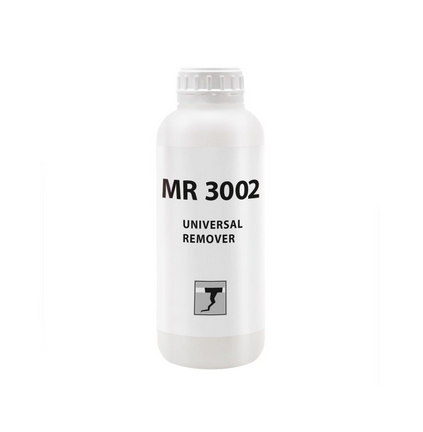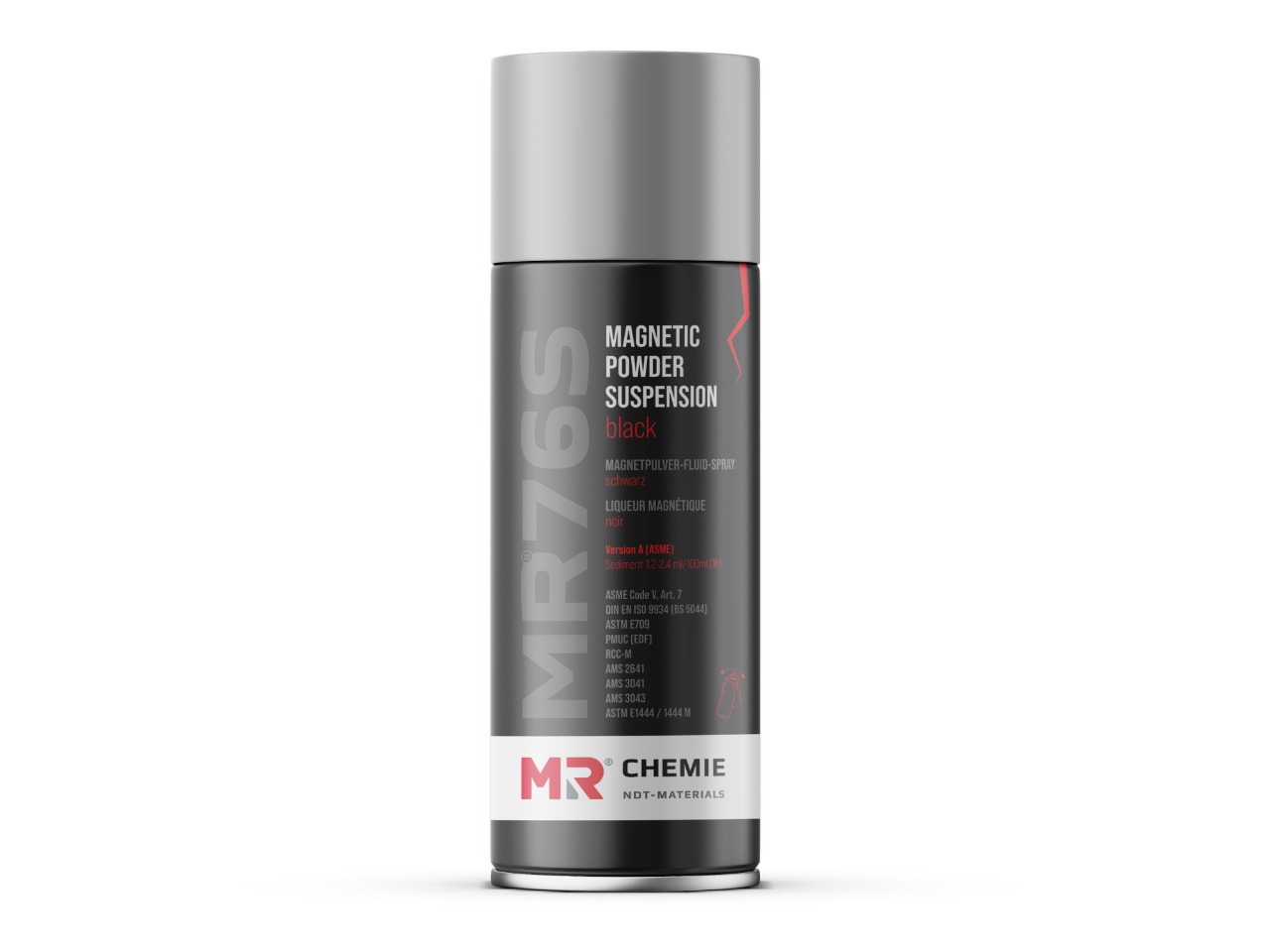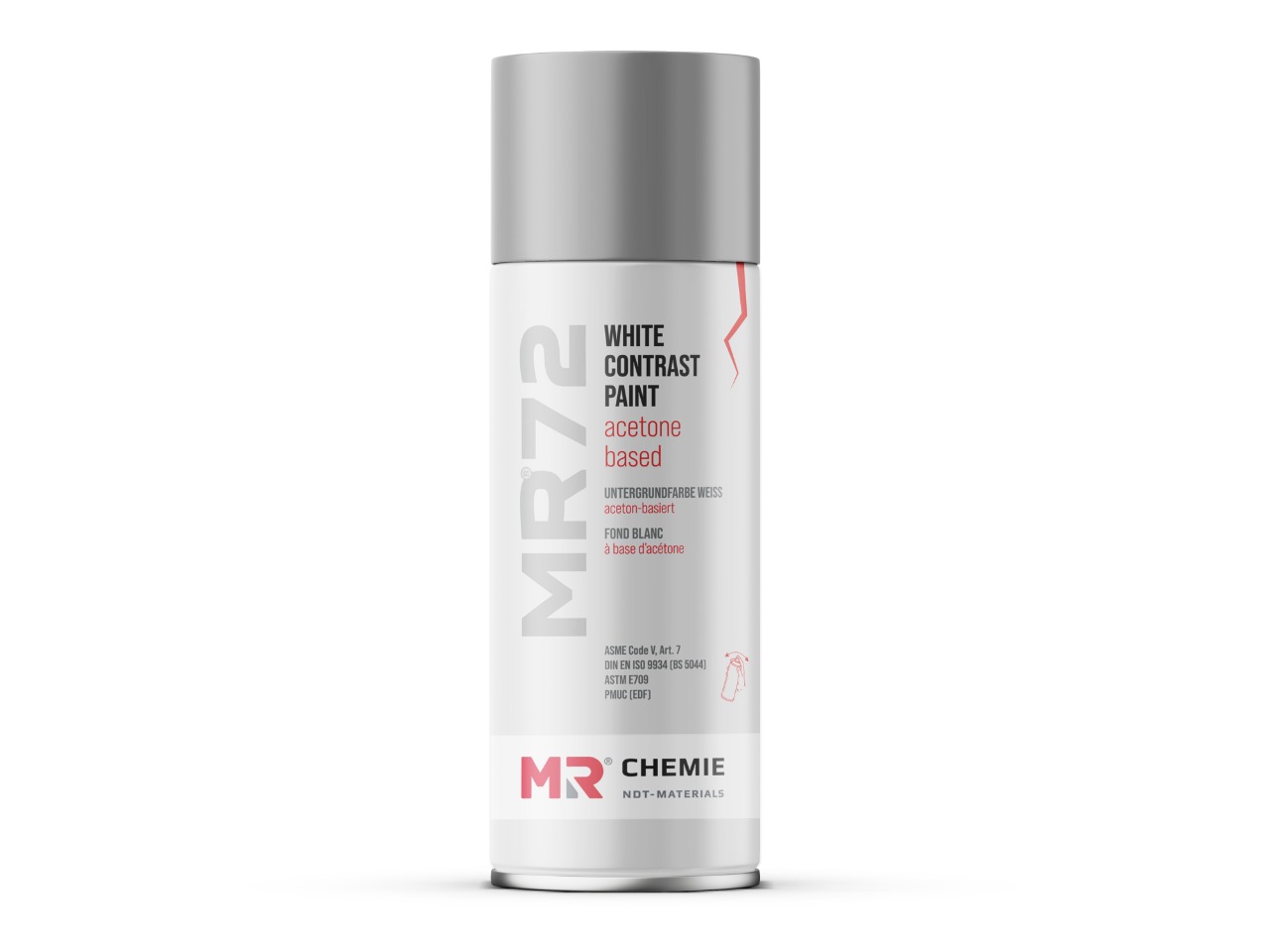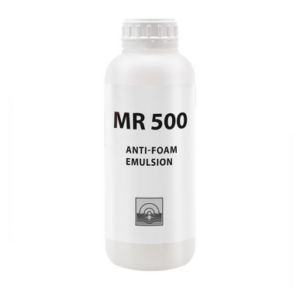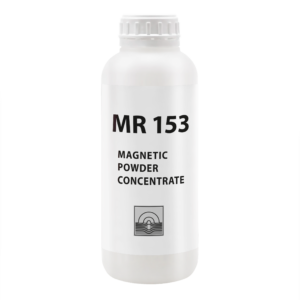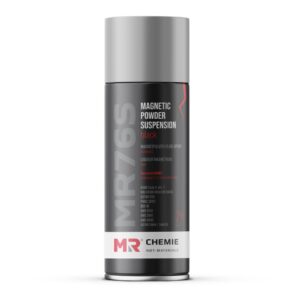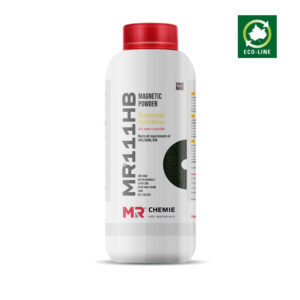MR®72, White Contrast Paint
MR®72 is a specially formulated quick drying coating material which serves to lighten the test surface when performing non-fluorescent magnetic particle inspection by forming a smooth white film to improve probability of detection and sensitivity.
Version of MR72 may vary in select countries.
| SKU | Pack Size | Case Size |
| 2511-0015 | Aerosol 400ml | 10 |
| 2511-0190 | Bulk 1L | 6 |
| 2511-0189 | Bulk 5L | – |
Additional information
| Properties | Appearance – white volatile liquid |
|---|---|
| Approvals | ASME Code V, Art. 7 |
| Family Testing | Contrast Paint – MR72 |
| Recommended Usage | NDT Method – Magnetic Particle Testing ** EZ or HD variant |
Features
- Bright white coating
- Free of aromatics, solvent-based
- Toluene free
- Benzene free
- Low odour
- Instant touch dry
- Easy to apply and easy to clean* #
- Non toxic
- Strong adhesion on all metal surfaces
- Available in multiple variants depending on user requirements
How it Works
In Magnetic Particle Inspection (MPI), contrast paint is a type of paint that is used to provide a contrasting background to the magnetic particles that are used to detect surface and near-surface defects in ferromagnetic materials. The white contrast paint is applied to the surface of the test piece to enhance the visibility of the magnetic particle indications.
The white contrast paint works by providing a contrasting background colour to the dark magnetic particle indications, which makes them more visible to the inspector. This is particularly useful in situations where the background colour of the test piece is similar in colour to the magnetic particles being used, which can make it difficult to see the magnetic particle indications.
GHS
Aerosol UN Model Regulation - UN 1950 AEROSOLS, 2.1FAQ
Q: What is white contrast paint used in MPI?
A: White contrast paint is a type of paint used in Magnetic Particle Inspection (MPI) to create a visible contrast between the surface being inspected and any potential cracks or defects. The paint is usually white in colour and applied in a thin layer over the surface being inspected.
Q: How does white contrast paint work in MPI?
A: White contrast paint works by creating a background colour that is different from the colour of the magnetic particles used in MPI. When a magnetic field is applied to the surface being inspected, any cracks or defects in the material will cause the magnetic particles to collect in those areas, forming a visible indication against the white background.
Q: What are the advantages of using white contrast paint in MPI?
A: The advantages of using white contrast paint in MPI include improved visibility of any potential cracks or defects, particularly in materials with a dark surface. The contrast paint also helps to enhance the sensitivity of the inspection, making it easier to detect smaller defects. It offers an optimum layer thickness ensuring better sensitivity using the magnetic particle suspensions.
Q: Are there any disadvantages of using other general white contrast paint in the market?
A: Some potential disadvantages of using general white contrast paint include the need for additional preparation time to apply the paint, and the potential for the paint to obscure small defects or make it more difficult to distinguish between cracks and surface irregularities. Also, the thickness of the paint varies that hampers the sensitivity of the magnetic suspension.
Q: Does MR Chemie offer different kind of paints?
A: MR Chemie has a variety of paint depending on the ease of removability, application, solvent versions and country.
Q: How to remove White Contrast Paint?
A: White Contrast Paint can easily be removed using our paint remover MR® 71 or MR®79
Q: What is the coating thickness of MR72?
A: A single coat of MR72 offers a layer thickness of 6-8 microns.
